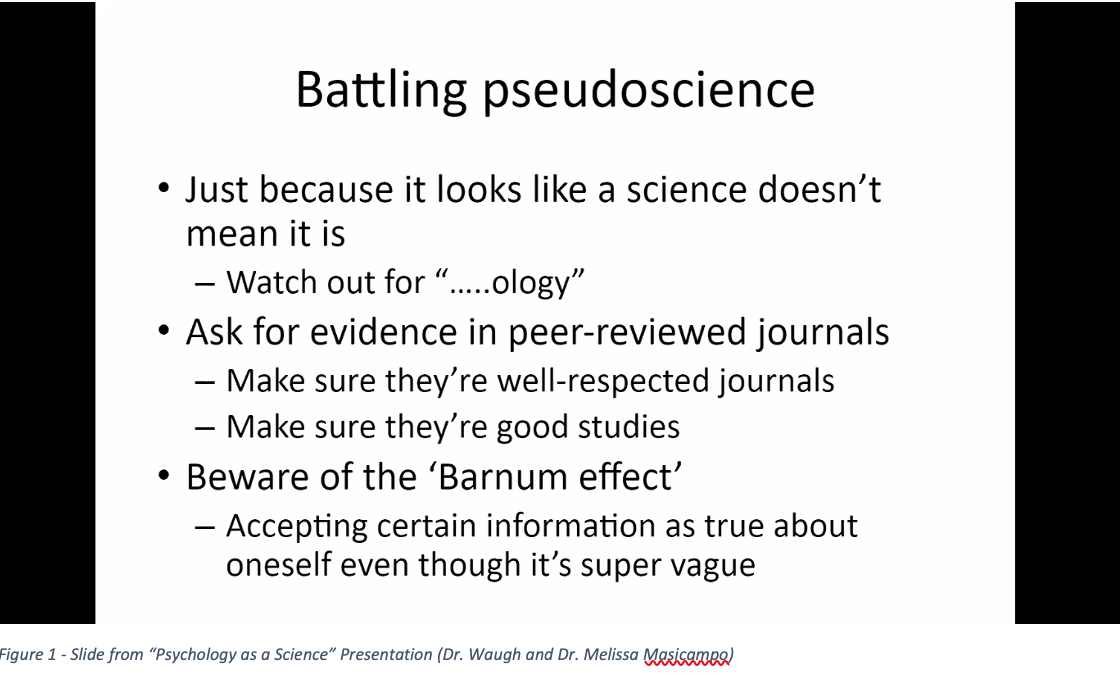Student Spotlight: Uma, Psychology Institute, Online Experience Summer 2020
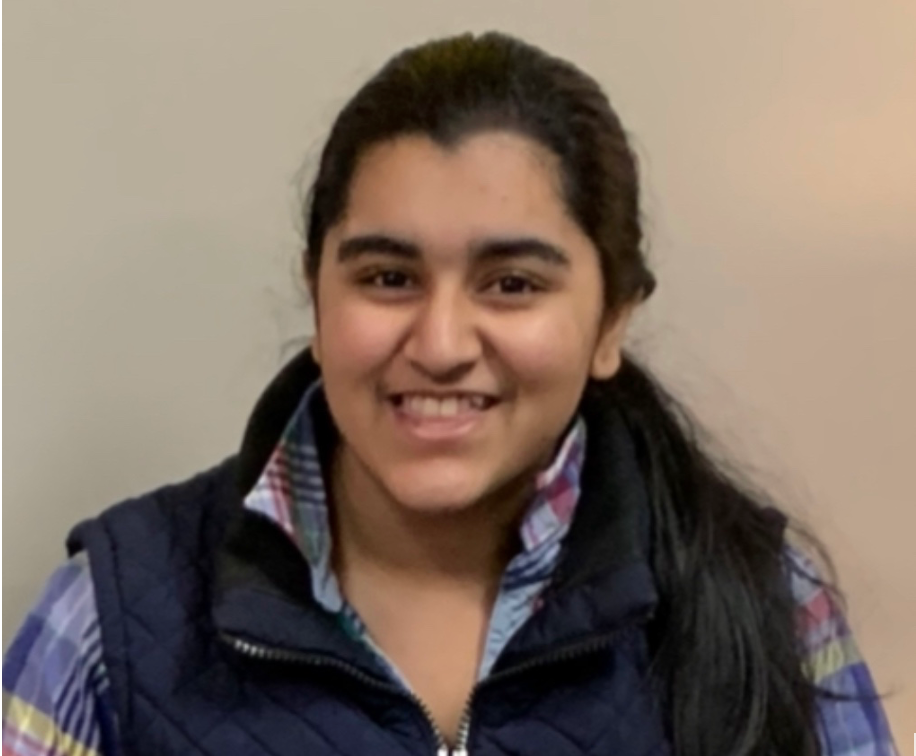
Throughout the 2020 Wake Forest Summer Immersion Program – Online Experience we will be featuring different students to talk about their diverse experiences in our Institutes. Learn more about our Psychology Institutes from the perspective of our students.
What were your biggest takeaways?
If you are a visual person like me, here is a graphic that encapsulates and expands on the main lessons I took away from my experience:
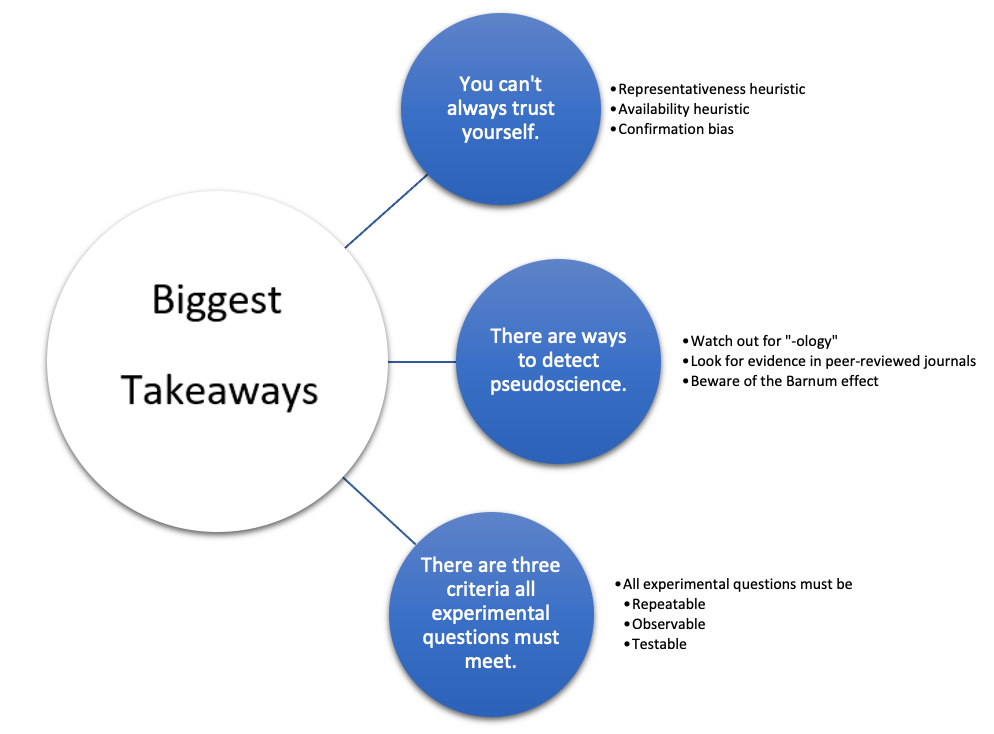
What is something new that you learned about yourself?
I learned that I rely on common wisdom and sayings more than I thought. Sayings like “birds of a feather flock together” and “opposites attract” contradict each other, yet many people consider the sayings to be true. When I learned about this, I realized that common wisdom might be true depending on the situation/context; you should not rely on a specific piece of common wisdom to help guide you in your life, even if it may be comforting to do so, because it may not apply to the specific situation you find yourself in.
How has this experience changed your mindset?
This experience has changed my mindset regarding pseudoscience. I realized that pseudoscience was more common than I realized. Even though there are ways to detect pseudoscience, like not being tricked by the ending “-ology,” asking for evidence in peer-reviewed journals, and not accepting very vague information as true about oneself (as shown in Figure 1), not all pseudoscience falls under those criteria. For example, Eugenics does not end in “-ology,” was published in major peer-reviewed journals, and was so widely accepted that it was the basis for some laws of the time. It is now understood as pseudoscience but was hard to detect. It also changed my mindset on scientists as a whole, as they are susceptible to confirmation bias, the same way other people are. In the case of Eugenics, their confirmation bias may have played a role in creating the pseudoscience, despite potentially not even realizing it.
What is an experience you had that really stands out to you?
One experience I had that really stands out to me was hearing Dr. Waugh and Dr. Masicampo’s presentation on the neuroscience behind brain disorders. That really stood out to me, because it showed the potential reasons behind the problems these people experience and areas where the treatments/cures to those disorders lies. As someone who hopes to do research into mental disorders to help those people to be happier and more productive, learning more about the potential causes and problem areas associated with those mental disorders was a great experience.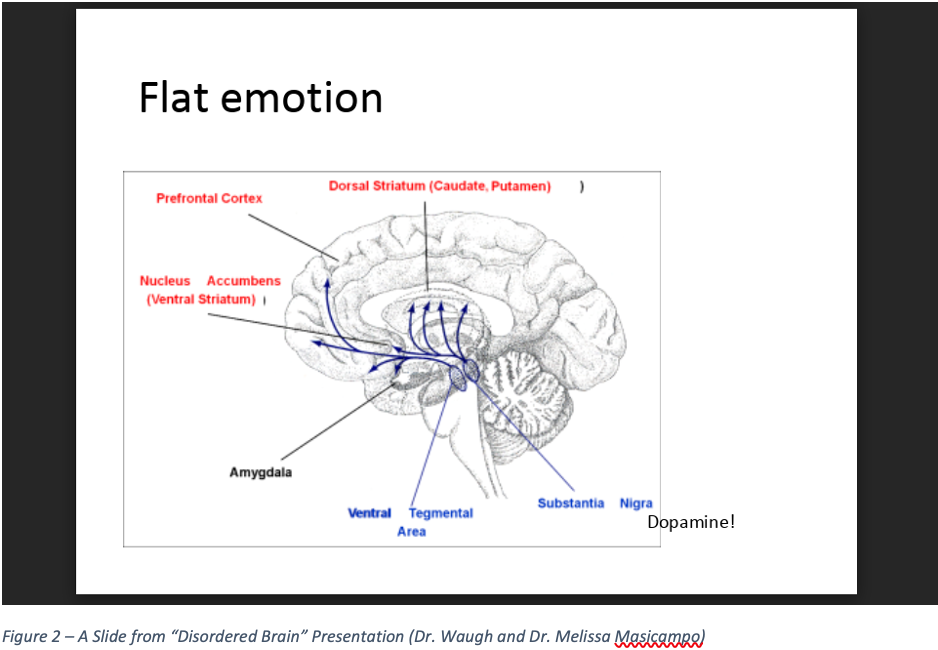
Describe someone you met who impacted you.
I would like to mention Dr. Melissa Masicampo. She is the Academic Leader of the Psychology Institute, has a PhD in Neuroscience from Florida State University, and is a professor at Wake Forest University. I had the chance to hear her speak about her background, pathway to being a professor, and her lessons for students who are interested in psychology. She helped me by answering my and other students’ questions about topics in psychology like memory and learning. She also gave advice for what to do in college if you seek to be in psychology, and what you can do now to discover your passion in the field. She impacted me also by being an intelligent scientist. I think of her as a role model and a person who I look up to.
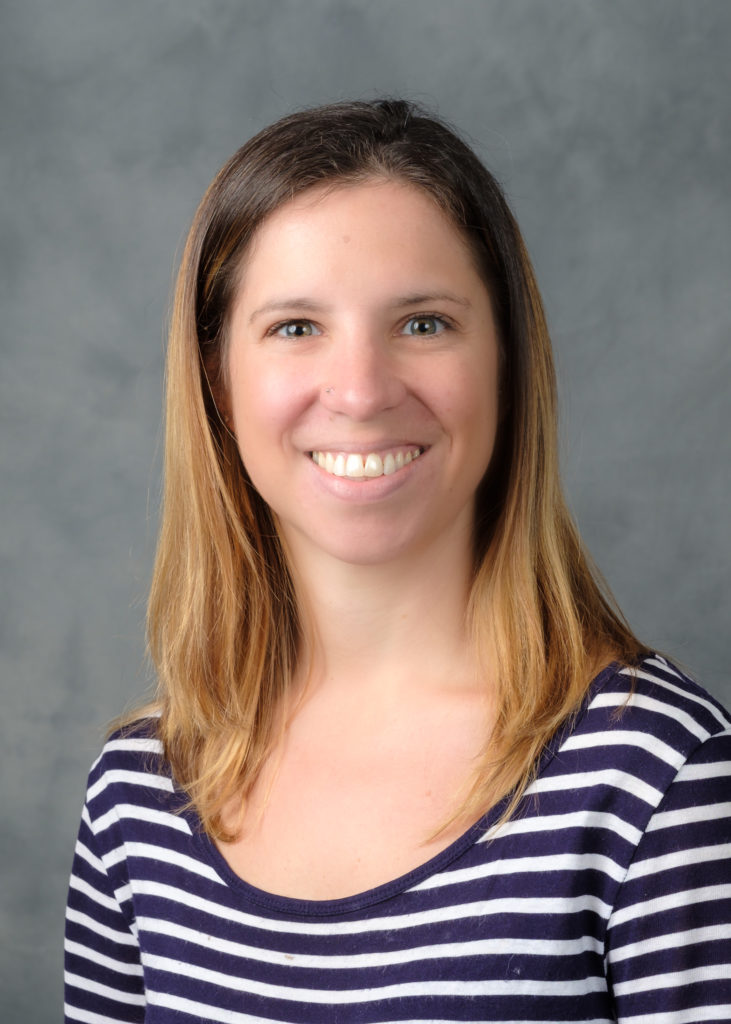
Figure 3 – A Picture of Dr. Melissa Masicampo
How has this experience impacted your future?
This experience reminded me of my biases and weaknesses, while also teaching me psychological methods regarding how to be a better student and about topics I hope to do research in. As a result, it made me more interested in the fields of psychology and neuroscience and more interested in doing research in that field in the future. This experience has also increased my confidence that psychology and neuroscience are fields I would like to pursue in the future and the information it has taught me has made me more prepared and more eager to to do so in the future.
What was your favorite moment from this week?
My favorite moment from this week was when I got to hear Dr. Masicampo’s presentation on memory and learning. It was my favorite presentation, because it gave me solid advice on how to be a better student and explained the psychology behind the advice. It was also a very useful presentation, as I plan on doing research into memory and learning and ways to improve memory and learning in the future, so that people are more capable of solving problems in their lives and the lives of others in their communities/around the world that are impacting them and/or their mental health negatively.
How has this experience clarified your goals?
One of the key reasons I decided to apply to be a student in the Psychology Institute was to explore research and be more prepared for that in the future. I see my future self as a leader in the non-profit/business sector and/or in the fields of medicine, psychology, and/or neuroscience. This experience has clarified my goals by giving me more information about the fields I would like to do research in. It has clarified my goals by making me feel more inspired to do research in fields like memory, learning, and mental disorders, so that I can make people happier and more capable of solving the problems in their lives and in the lives of others.
What was the most interesting thing you did/saw/learned?
The most interesting part of the Psychology Institute for me was learning about gut feelings and whether you should trust them. It was the most interesting part because intuition is something that I tend to rely on when I make decisions; learning about experiments and tendencies people have when relying on their gut feeling was very interesting. The short answer to whether a person should rely on their gut feeling was that it depends. Gut feelings about certain situations have shown to be correct in an experiment that was described to us (shown in Figure 4), but if your gut feeling is in relation to a person, it may not be correct. If a person reminds you of someone you have had a bad experience with, then that gut feeling may be bad and incorrect. Similarly, people have evolved to trust those who look like us, so your gut feeling about a person who looks different from you (physical characteristics), may not only be incorrect, but may also lead into prejudice, stereotyping, and/or discrimination. I never thought about gut feelings contributing to prejudice and I thought that was also interesting.
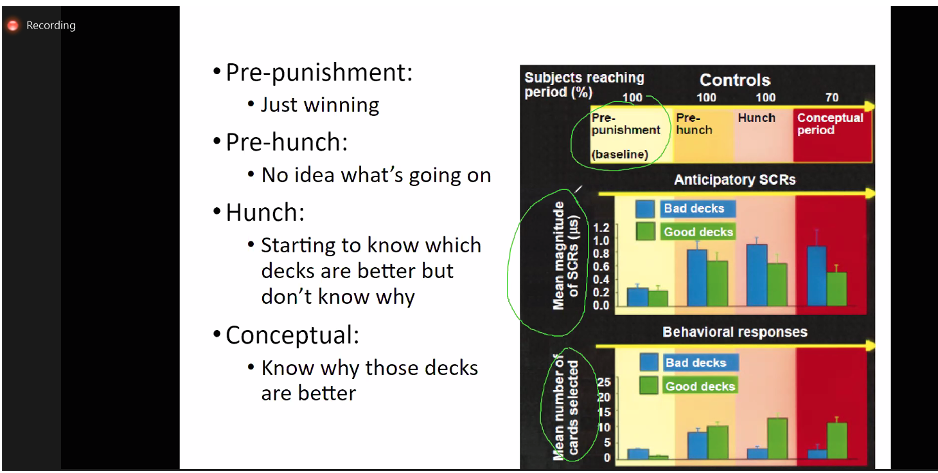
Figure 4 – “Emotions in Daily Life” Presentation (Dr. Waugh and Dr. Melissa Masicampo)
Why would you recommend the Summer Immersion Program?
I would recommend the Summer Immersion Program Psychology Institute, because it changes the way you view your intuition and phenomena in the world (e.g. discrimination as partially based on gut feelings) and gives people the ability to explore their interests in psychology. Students can also meet people who are passionate about psychology and neuroscience and will have the opportunity to communicate with them, get to know them better, and form lasting friendships. My experience in the Psychology Institute was an extremely memorable and interesting experience and I am grateful for being able to learn from the wonderful speakers, program ambassadors, and students here.


